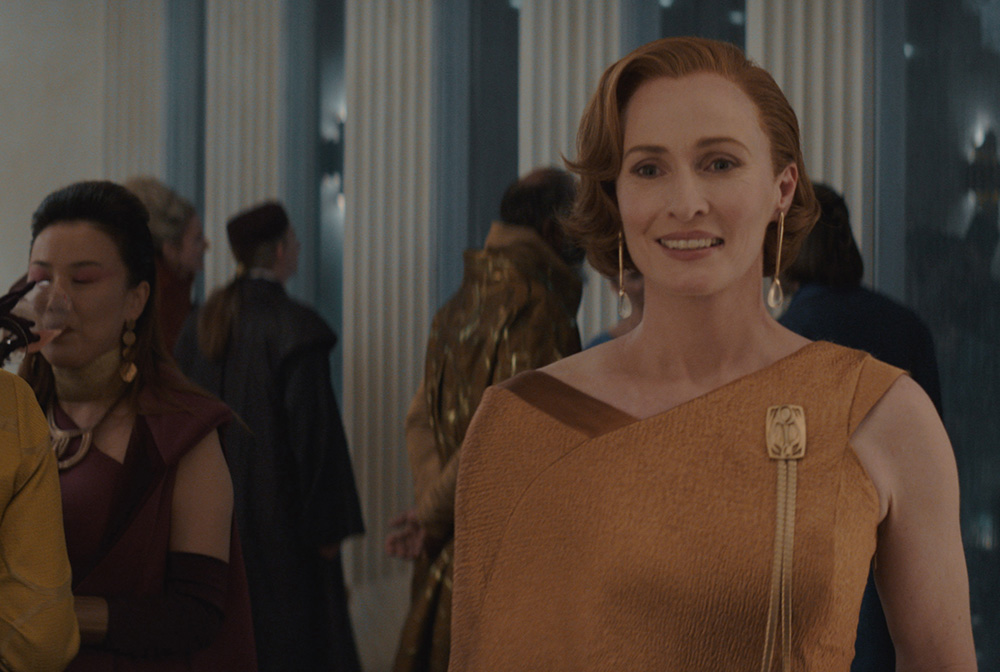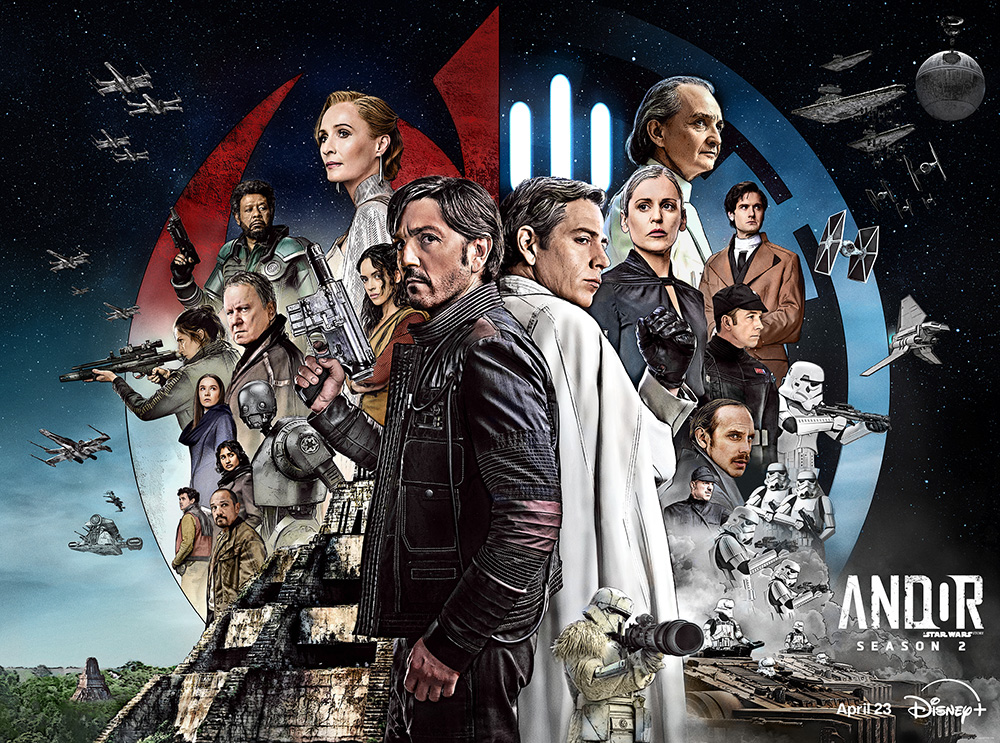
Mon Mothma (Genevieve O'Reilly) in "Andor," exclusively on Disney+ (©2022 Lucasfilm Ltd. & ™)
"Star Wars" has always been unapologetically political and unequivocally anti-empire. Over half a century of movies, television shows, books and comics, the overarching theme of the saga has always been: Facism is bad, freedom is good.
In all this time of depicting resistance against facism, no piece of "Star Wars" material has captured the moral urgency, resolute hopefulness and prophetic witness required to stand up to the empire like "Andor." It is the show for our times, as we witness with horror the emergence of an American empire.
This is hardly new ground for the saga. "Star Wars" has consistently met the moment to offer prophetic witness and hold a mirror to American politics.
The original trilogy was a thinly veiled condemnation of the United States' role in the Vietnam War, American imperialism and capitalism. The prequel trilogy chronicled the rise of a fascist regime in the midst of a manufactured crisis reinforced by fake news, drawing inspiration from the Iraq War. Written and released during the dawn of the Trump administration, the sequel trilogy demonstrated that fascism can reappear at a moment's notice if we are not vigilant.
"Andor" is written for a post-Project 2025 America, inspired by the rise of the second Trump administration, the genocide occuring in Gaza and the descent of western democracies into the fascist abyss.
Advertisement
The second and final season takes place in the five years before the original Star Wars trilogy, as the Galactic Empire attempts to solidify its grip on a galaxy that has been pushed to its breaking point under the tyrannical regime.
Faced with an increasingly elusive and growing rebellion, the Empire is desperate to complete their super weapon, the Death Star: A space station that will give them the capability to massacre entire planets in the blink of an eye. In order to build this technological terror, the Empire is plundering the resources of vulnerable communities and destroying environments, all the while using their vast media apparatus to explain away the work as necessary and those rebelling against it as terrorists.
Sound familiar?
It comes to a head on a planet called Ghorman, one rich in the resources needed by the Empire to finish their weapon. In order to legally repossess the planet and its treasures, the Empire slowly and purposefully escalates tensions with the population until they have effectively created a violent rebellion, which they use as pretext to declare martial law, genocide the population and take what they need. Meanwhile, the galaxy is repeatedly informed about how violent, evil and lawless the Ghorman people are. They deserved this crack down. It was needed for the greater good.
Again, sound familiar?

The second and final season of "Andor" takes place in the five years before the original Star Wars trilogy, as the Galactic Empire attempts to solidify its grip on a galaxy that has been pushed to its breaking point under the tyrannical regime. (Disney)
As news of the genocide reaches the rebellion, it becomes clear that the Empire has crossed a line, past the point of no return. The hour is desperate, and it is time for those who were on the fence to choose a side. It is time for the rebellion to reveal itself.
Enter Mon Mothma (Genevieve O'Reilly): Senator of a wealthy, privileged planet, and the secret leader of the rebellion. In what is arguably the climax of the series, Mothma engineers one final speech in front of the senate — broadcast to the entire galaxy — understanding that while doing so will undoubtedly destroy her career and imperil her life, it is the only courageous and moral decision left in her arsenal.
O'Reilly delivers a flawless, impassioned, captivating speech that decries fake news, courageously names the genocide occuring in the galaxy and condemns the Emperor as a monster who will spare nobody to obtain the domination he desires.
The speech, by writer Tony Gilroy, was seemingly written directly to today's citizens of the United States. It is a clarion call for all Americans to resist the machinations of the current regime that seeks to erode every American institution it can get its hands on.
"I believe we are in crisis," Mothma says, almost looking directly into the camera as the music begins to swell. "The distance between what is said today and what is known to be true has become an abyss. Of all the things at risk, the loss of an objective reality is perhaps the most dangerous. The death of truth is the ultimate victory of evil. When truth leaves us, when we let it slip away, when it is ripped from our hands, we become vulnerable to the appetite of whatever monster screams the loudest."
The speech nearly breaks the fourth wall as Mothma names the Emperor, the monster "we helped create," as the one responsible for the proliferation of division and erosion of truth. Mothma's speech highlights precisely how the epidemic of fake news has led us to the brink of oppression; not just the galaxy, but America. Though she is not the titular character of the show, she is its moral compass — and ours. Only when we are courageous enough to speak truth to power, to be the voice crying out in the wilderness, do we set our people on a course to freedom.
In such moments, "Andor" ceases to be just "Star Wars," or even a piece of media. It becomes a prophetic warning — and an instruction manual. As it has done in recent generations, "Star Wars" has once again given us a rubric for how to stand up to fascism. Will we listen?





